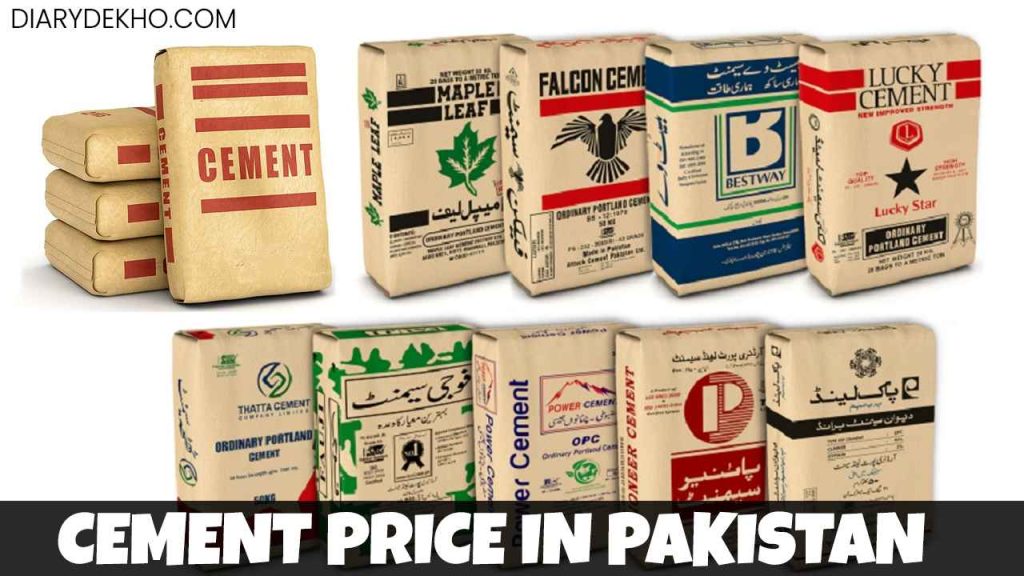Cement is the backbone of Pakistan’s construction industry, crucial for building structures and infrastructure. It’s durable, versatile, and cost-effective, making it vital for the country’s urban growth. With a rising population and continuous construction, cement demand remains consistently high in Pakistan.
In Pakistan, cement prices range from RS. 1,210 to RS. 1,265 per bag, depending on market conditions and regional dynamics. Production costs, raw material availability, transportation costs, and market rivalry affect supply and demand equilibrium prices. Construction stakeholders must monitor price changes to improve budget management and project planning.

Cement Price in Pakistan Today Rate
Cement prices vary by company in Pakistan, affecting the cost of a 50-kilogram bag. Contractors, homeowners, and builders can use this information to make informed and cost-effective decisions.
| Companies | Minimum Price (PKR) | Maximum Price (PKR) |
|---|---|---|
| Fauji Cement Rate | PKR 1,460 | PKR 1,470 |
| Pioneer Cement Rate | PKR 1,450 | PKR 1,460 |
| Maple Leaf Cement Rate | PKR 1,470 | PKR 1,480 |
| Askari Cement Rate | PKR 1,455 | PKR 1,465 |
| Cherat Cement Rate | PKR 1,455 | PKR 1,465 |
| Pakcem Cement Rate | PKR 1,470 | PKR 1,480 |
| Kohat Cement Rate | PKR 1,450 | PKR 1,460 |
| Falcon Cement Rate | PKR 1,455 | PKR 1,465 |
| BestWay Cement Rate | PKR 1,460 | PKR 1,470 |
| Power Cement Rate | PKR 1,460 | PKR 1,470 |
| DG Khan Cement Rate | PKR 1,460 | PKR 1,470 |
| Flaying Pakistan Rate | PKR 1,435 | PKR 1,445 |
| Paidar Cement Rate | PKR 1,450 | PKR 1,460 |
| Lucky Cement Rate | PKR 1,455 | PKR 1,465 |
| Maple Leaf White Cement | PKR 2,050 | PKR 2,150 |
| Kohat White | PKR 1,850 | PKR 1,950 |
Read Also: Solar Panel Price in Pakistan
Factors that Affect Cement Prices in Pakistan
Several factors significantly influence Cement Prices in Pakistan:
- Demand and Supply: There is a balance between the amount of cement that building projects need. Cement manufacturers produce enough to meet that demand.
- Economic Conditions: The state of the country’s economy as a whole. This includes GDP growth, inflation rates, and the amount of money people have available to spend.
- Government Policies: Regulations, taxes, and subsidies placed by the government can directly affect production costs and, consequently, cement prices.
- Energy Costs: The price of the fuel and power that are needed to make cement.
- Global Trends: International market trends, such as changes in the prices of raw products and geopolitical events.
Read Also: Tiles Prices in Pakistan
Final Thoughts
In summary, demand, economic conditions, government regulations, energy costs, and global trends affect Pakistani cement prices. Complex interactions between these factors affect cement prices over time. To foresee and respond to changes, building sector stakeholders must understand these dynamics. Parties may effectively navigate the cement market and ensure project success by remaining informed and adjusting.